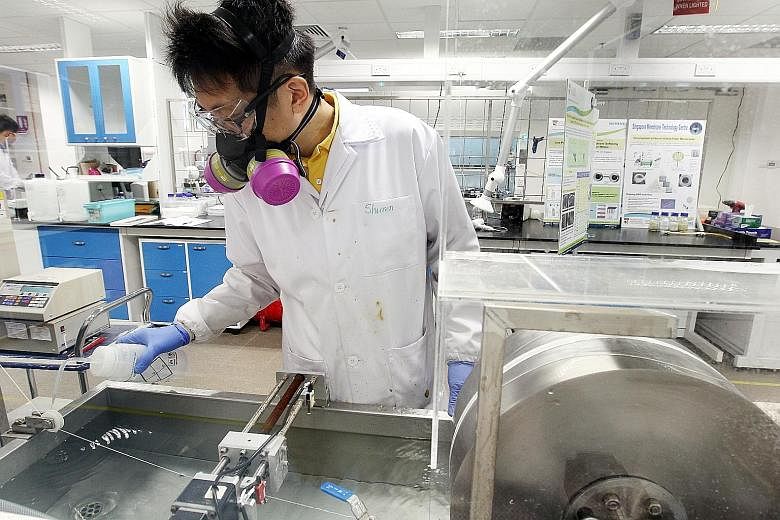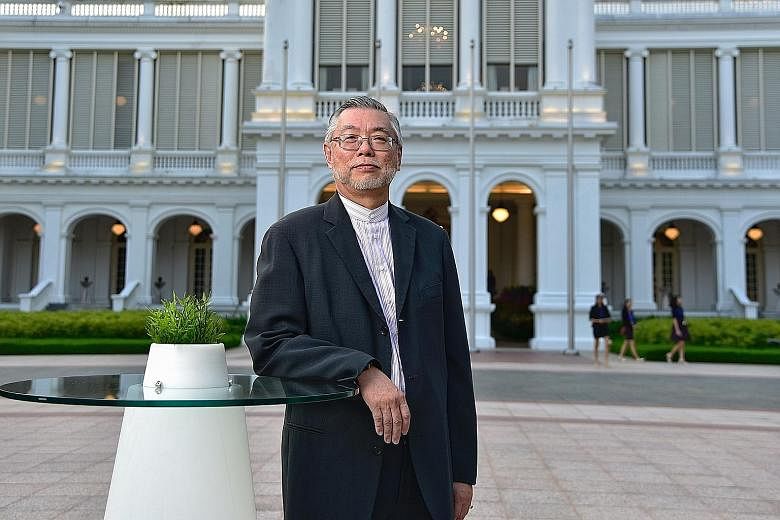Q How did Nanyang Environment and Water Research Institute (Newri) come about?
A About 12 or 13 years ago, there were discussions among various government agencies on the issue of water here. It is a fact that we have a water security situation, but that doesn't mean we cannot do something about it, nor does it mean, if we are able to resolve the issue, we should just sit around and not think beyond that. If we can resolve our situation, then why should we not consider making it a business? And when we are successful, then what next?
To address the first issue, it would be better if we have our own expertise so we know what we are buying, and then ask ourselves if we can do better. That is important. If we want to make it a business, then we need to eventually be as good or better than potential competitors. That's the backdrop.
As for the second issue, there were two things we needed to consider: Do we have enough warm bodies and do we have the know-how? It is a challenging chicken and egg problem. If we do not have the warm bodies, we cannot create the know-how, and if you don't have the know-how, you cannot generate enough excitement to attract the first batch of warm bodies and create the next batch of warm bodies.
Q So how did you set it up?
A When I first came to NTU I had only two people with me - a personal assistant and a senior administration manager. Why did I not start with researchers? The one thing that I wanted to be very sure of was that I was totally non-threatening to my incumbent colleagues - that is to say, I had every intention to be inclusive. If I had come with a team of new researchers, my colleagues would have thought I had no need of them. The approach was I formed a transparent administrative structure first, which could manage our research needs. Thereafter I went to my colleagues to inform them that as I have no research team with me, I needed their help to make this research organisation work.
Q How big is the team now?
A As of July this year, we had 80 to 100 in the faculty. They formed their teams of researchers and the research staff strength has grown to about 120. The number of PhD students is at about 100 to 150.
Q What do you consider to be one of Newri's biggest achievements?
A At the academic level, we managed to create a platform where people from different disciplines can come together and work together. If you walk down to the laboratories, you will find that we purposely do not allow walls unless there is a safety requirement.
Q What is your biggest takeaway?
A I have always thought of Newri as an "experiment" in "non-classical" research and development management, and my main takeaway at the end of a 10-year-long "experiment" is yes, this blending of good research with translation and development leading to industry relevance can be done.
As a professor, what I would have liked to do is go to the lab, do what piques my curiosity, have enough resources to support my curiosity-driven work, publish many papers and share the knowledge gained with fellow researchers. However, what Newri had required of its professors is to continue to be like this, but also to be something more. We are trained to do research and may believe it is the be-all and end-all. But research without market deployment is not a sustainable activity. It became necessary for myself first, and then my colleagues to understand that research is the beginning and that good research must not end at research.
Q What is next for Newri?
A My original plan was 15 years but now, after 10 years, we are already close to achieving what we set out to do. Now it is at the stage where we have a portfolio of intellectual property and we can start to talk about the industry. It is time to "monetise" the research. We must never forget that research is a cost and, at some point in time, we need to realise monetary value.
If we don't have that monetary value completing the loop, the research is not sustainable. Ten years down the road, it is time to take that research and go see if it makes sense to the industry and the national economy.


